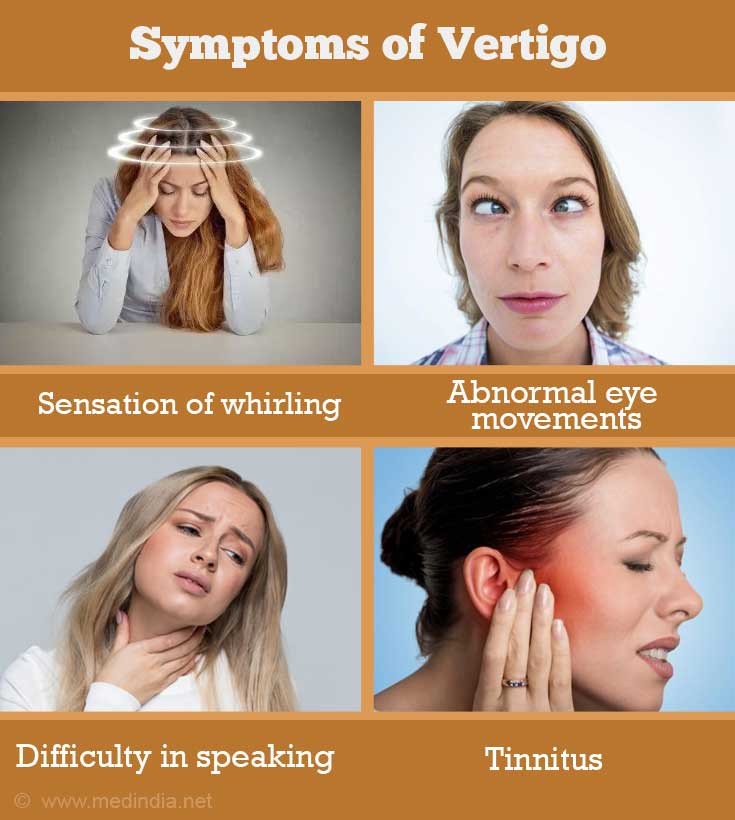
Contents
10 Signs of Vertigo
Vertigo is a false sense of motion that can occur while you are still or moving. It can cause feelings of spinning or moving, loss of balance, dizziness, lightheadedness, and nausea.
Vertigo is a symptom that can indicate a more serious condition. It is not simply dizziness.
Vertigo is a false sense of motion that can occur while still or moving. It feels like everything is spinning or moving.
Vertigo can be positional, occurring when you move your head in certain ways. It can also cause feelings of unsteadiness or impending falls.
Signs and symptoms of vertigo
Vertigo is more than just feeling dizzy. It is the sensation that everything is moving. An episode of vertigo can happen suddenly and last for minutes or hours. Severe cases can persist for months and involve multiple symptoms.
Vertigo symptoms may include:
- Feeling of spinning
- Loss of balance
- Dizziness
- Lightheadedness
- Nausea
- Vomiting
- Feeling of floating
- Feeling of the floor tilting
- Feeling "spaced-out"
Some people may experience additional symptoms along with vertigo, which may indicate other health conditions. These symptoms include ringing in the ears, ear pressure or pain, ear drainage, hearing loss, double vision, and vision loss.
Causes of vertigo
Vertigo can affect anyone, but it is usually caused by specific conditions. It may be due to problems with the inner ear or the central nervous system. It can also be a sign of a more serious condition. Causes of vertigo include:
Labyrinthitis
Labyrinthitis is an infection of the inner ear, which is responsible for balance control. Inflammation of this part of the ear can lead to balance problems.
Benign paroxysmal positional vertigo (BPPV)
This type of vertigo can be triggered by certain head movements. It is common and often results from inner ear issues. Symptoms of BPPV include a sensation of the floor tilting or feeling like you are floating.
Vestibular neuronitis
Inflammation of the vestibular nerve, which connects the inner ear with the brain and regulates balance, can lead to difficulty sensing movement and subsequent vertigo.
Vestibular migraines
Vestibular migraines are severe headaches that can cause dizziness, vertigo, temporary blind spots, and sensitivity to light and sound. They tend to occur in individuals with a family history of vestibular migraines.
Ménière’s disease
Ménière’s disease is a rare condition that affects the inner ear and can cause ringing in the ear, hearing loss, and vertigo.
Head or ear injury
Vertigo can be the result of head trauma or injury to the eardrum, inner ear, or base of the skull. Tumors on the inner ear nerves may also cause vertigo by exerting pressure on the nerve responsible for balance control.
Neurological disorders
Brain disorders such as multiple sclerosis, stroke, and seizures can rarely cause vertigo.
Certain medications
Some medications used to treat seizures, depression, anxiety, and pain may have vertigo as a side effect. These medications can damage the inner ear nerves. Examples include aminoglycoside antibiotics, cisplatin, diuretics, salicylates, anticonvulsants, and certain alcoholic and illicit drugs.
QUESTION
When to see a doctor for vertigo
Vertigo often improves without treatment. However, if it persists, it is advisable to consult a doctor. Sometimes vertigo can be a sign of an underlying serious condition. Seek medical attention if you experience vertigo along with the following symptoms:
- Double vision
- Vision loss
- Trouble speaking
- Numbness or tingling in your leg or arm
- Trouble speaking
- Neck pain
- Facial paralysis
Tests for vertigo
To diagnose vertigo, your doctor will gather information about your symptoms, personal history, and medical history. They may inquire about any events that could have triggered your vertigo, such as falls or new medications. A physical examination will also be conducted to measure your blood pressure, heart rate, and assess your ears.
Based on your symptoms and medical history, additional tests may be necessary, including:
- Balance and gait test (Romberg test)
- Balance test by walking a straight line with one foot placed behind the other
- Hearing test
- Rotary chair testing
- Eye movement test
- Caloric stimulation
- Electroencephalogram (EEG)
- Electrocardiography (ECG)
- Heart monitoring
- Exercise stress test
- Imaging test of the head
Treatments for vertigo
Most cases of vertigo can be managed at home and often improve without treatment. However, if symptoms persist, medical attention is advised. Treatment will vary depending on the cause. Possible treatments for vertigo include:
- Antibiotics for inner ear infections
- Benzodiazepines
- Antihistamines
- Physical therapy exercises to correct balance problems
There are also measures you can take to reduce the frequency of vertigo episodes and manage your symptoms:
- Sit down when feeling dizzy
- Move your head carefully and slowly during activities
- Lie down in a quiet, dark room
- Elevate your head slightly with pillows while sleeping
- Keep lights on when getting up at night
- Sit up and get out of bed slowly
- Use a cane or walking stick if feeling unsteady
- Clench your hands and flex your feet before standing
- Squat instead of bending over
- Store items at lower levels for easy reach
- Manage stress
Can an inner ear infection cause vertigo?
Vertigo occurs due to disturbances in the vestibular system, which involves the brain and inner ear and helps maintain balance and eye movements. Health conditions such as inner ear infections can lead to vertigo, causing a sensation of the room spinning or moving.
When to see a doctor
It is important to make an appointment with a doctor if you experience persistent dizziness or vertigo. If symptoms are severe and accompanied by excessive vomiting, seeking emergency medical care may be necessary. Watch out for headaches, fainting spells, problems with speaking, hearing, or swallowing, difficulty moving limbs, and neck pain.
During a doctor’s visit, they will likely ask questions about your condition and conduct a physical examination to check for health problems like inner ear infections that may be causing the vertigo. Additional diagnostic tests may be ordered to determine the underlying cause.


